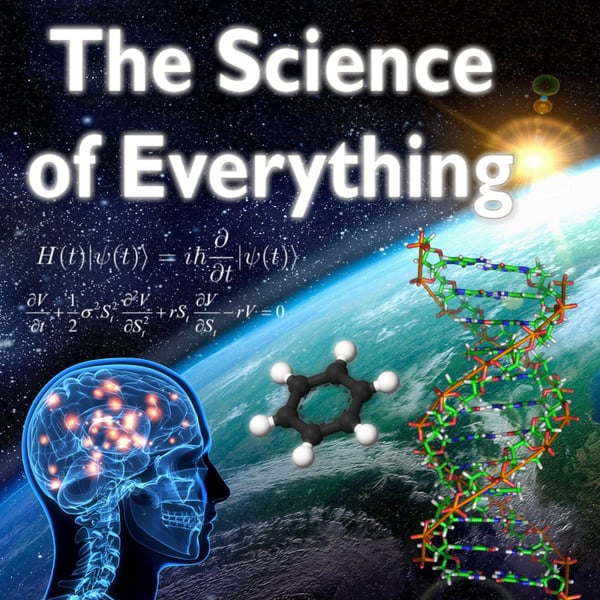Episode 1: Explaining Gravity
The Science of Everything Podcast
James Fodor
4.8 • 750 Ratings
🗓️ 11 July 2010
⏱️ 38 minutes
🧾️ Download transcript
Summary
Transcript
Click on a timestamp to play from that location
| 0:00.0 | Oh, oh, oh, oh, oh, oh, oh, oh, oh, hey. |
| 0:15.0 | Oh, my life. |
| 0:17.0 | Oh, wow. Hello and welcome to the Science of Everything podcast. I'm your host James Fodor. In this podcast, I discuss a wide variety of topics in both the natural and social sciences exploring the many fascinating insights that the scientific method yields about the world around us. Now, the topic for the first episode this week is explaining gravity. So in this episode, I want to look at first the historical background about different theories |
| 0:58.2 | of gravity before moving on to explaining Newton's theory of gravity. |
| 1:02.2 | And then we'll look at how orbits work, the topic about gravity in space and on the moon, |
| 1:07.1 | etc. And finally, we'll have a bit of a look at the tides. |
| 1:12.4 | So let's dive into it. |
| 1:17.5 | Now, theories about gravity basically go back to the times of the ancient Greeks. |
| 1:25.3 | According to ancient Greek, they didn't really have a concept of gravity like we do today as a force, they believed that all objects in the |
| 1:29.6 | universe or on earth were made up of four different elements and that different elements had |
| 1:35.3 | different natural tendencies to go in different directions. So, for example, fire had a natural |
| 1:40.0 | tendency to go upwards, seek the heavens, so to speak. And so if an object had lots of fire |
| 1:45.3 | in it, it would tend to go upwards. Whereas if an object had lots of earth in it, it would tend to |
| 1:50.3 | sink downwards. And the ancient Greeks also believed that the circle was sort of a perfect form, |
| 1:58.5 | a perfect shape. And so circular motion at a constant speed was sort of seen to be perfection, |
| 2:05.4 | sort of the universal and natural form of motion. |
| 2:10.2 | And so it was believed that all the planets had a circular orbit around the Earth. |
| 2:15.8 | And that idea of a geocentric universe was put forth by Aristotle, and later on it was |
| 2:22.7 | sort of codified and consolidated in the Ptolemaic model. |
| 2:28.1 | Ptolemy lived in, I think, the second century AD, or might have been the first century, and he adopted basically an |
| 2:39.2 | Aristotelian worldview of gravity in the orbits, except that more accurate observations of the |
| 2:47.1 | planets had showed that there was a phenomenon called retrograde motion. Basically, that means that normally the planets had showed that there was a phenomenon called a phenomenon called retrograde motion. |
... |
Please login to see the full transcript.
Disclaimer: The podcast and artwork embedded on this page are from James Fodor, and are the property of its owner and not affiliated with or endorsed by Tapesearch.
Generated transcripts are the property of James Fodor and are distributed freely under the Fair Use doctrine. Transcripts generated by Tapesearch are not guaranteed to be accurate.
Copyright © Tapesearch 2025.

